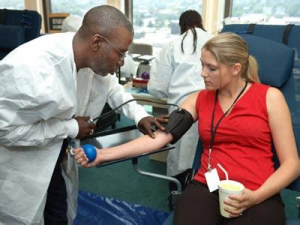Volunteering for a clinical trial is a truly altruistic and fulfilling act. If you’re considering finding out what trials are available now, then it’s clear that you want to give something back and trust science to find innovative ways to improve life for people. More awareness needs to spread about clinical trials and how they advance science. Without knowledge of the important work that clinical trials do, volunteers will be harder to find. Without volunteers, advances in treatments and drugs cannot move forward. Here are some great reasons to get involved:
A wider impact – When volunteers take part in trials, the impact that they have can be global. A new treatment or medicine can positively impact millions of people around the world and a volunteer can play a part in that success. Could there be a more satisfying act than knowing that you’ve helped millions of people to receive improved healthcare?

New treatments – Every single drug, vaccine or device must go through rigorous trials before becoming available to the wider market. Volunteers help this to happen. There are various phases of trials and clinical participants are required at every stage. For the advancement of science in healthcare, volunteers are an essential part of the process before a treatment can ever appear in a GP surgery or hospital. Find out more about Adaptive Phase 1 Clinical Studies at a site such as https://www.richmondpharmacology.com/specialist-services/adaptive-phase-i-studies
Quality improvement – When there are more than one treatment available, physicians can try one and if it works great but if it doesn’t, they must try another. Trials can be carried out to compare existing treatments, not just new ones. This means that the quality and speed of care can be improved as the results of the trial will reveal the most effective treatment for that condition and this can be prescribed first time.
Safe and Effective – Trials play a crucial role in developing treatment protocols and establishing safe dosage practices. There are four different phases of a trial, as well as multiple regulatory bodies to oversee the safety and efficacy of medicine and devices. Even after a product has been released on to the market, additional checks and tests are still carried out. This is to ensure ultimate safety for users.
Overcomes bias – Doctors can sometimes fall into the trap of believing that a new treatment, device or drug is superior to an older one. However, to know this for certain, trials are extremely useful. Trials help to improve quality of care so that the best treatment is identified first time round for a patient.

Treatments for children – Another important reason to volunteer for trials is to help in developing treatments for childhood disease. Children have different physiological make ups to adults, so to protect them, potential medicine is tested on adults before child volunteers. Once safety is established in adults, the trials can begin with children as participants. If you feel passionately about children’s health, volunteering for a trial is a great thing to do.
